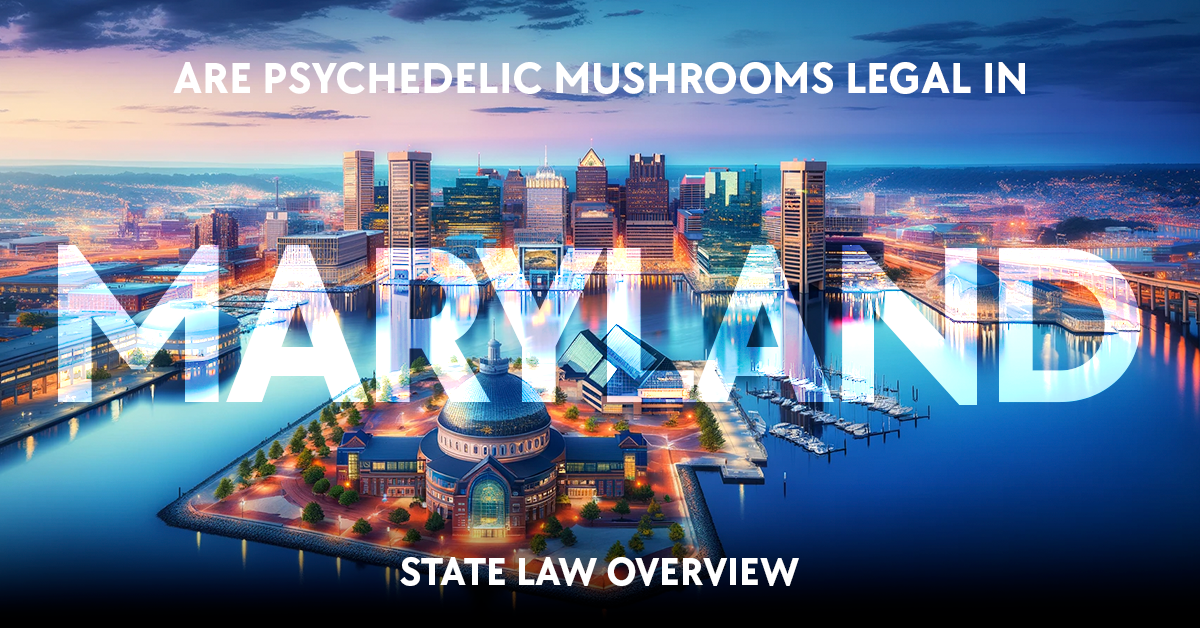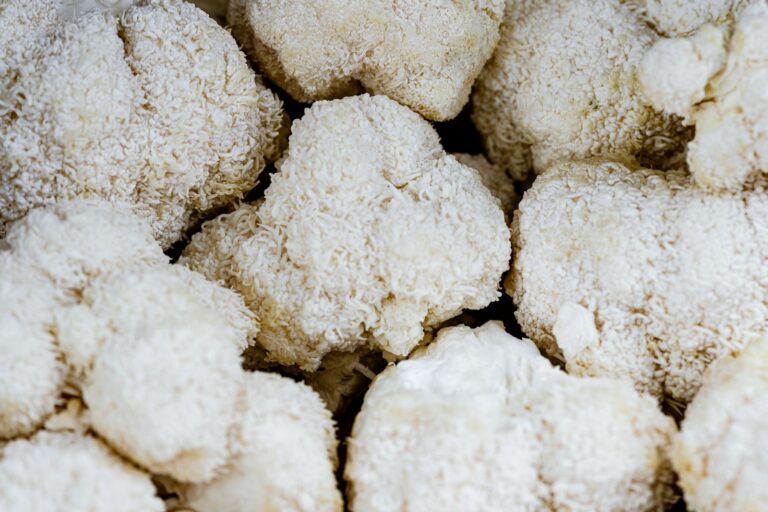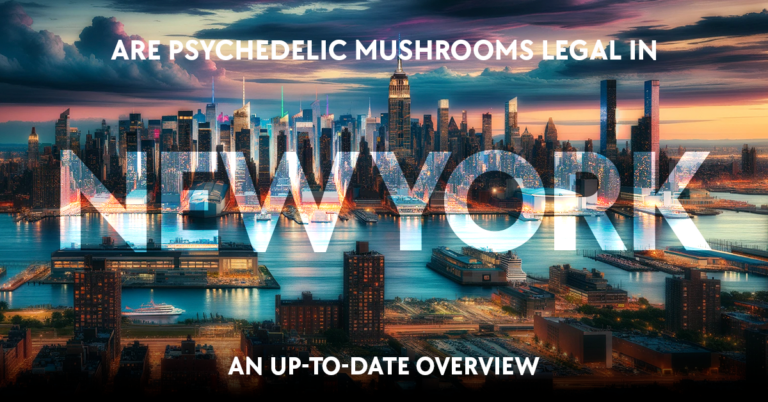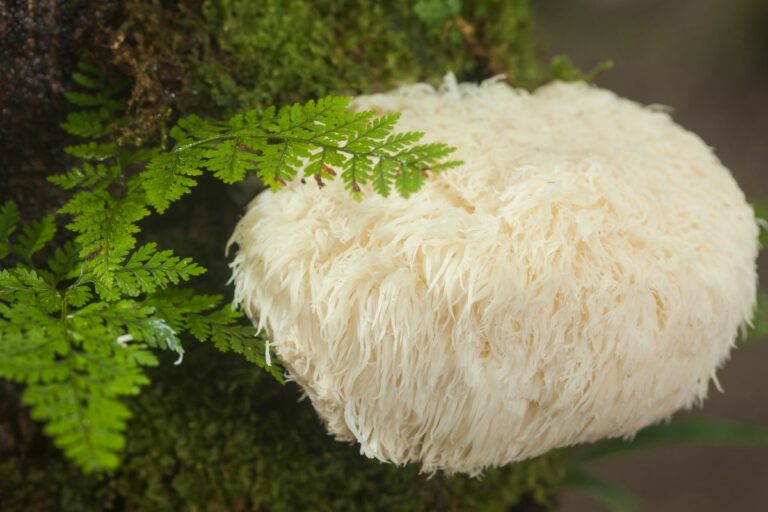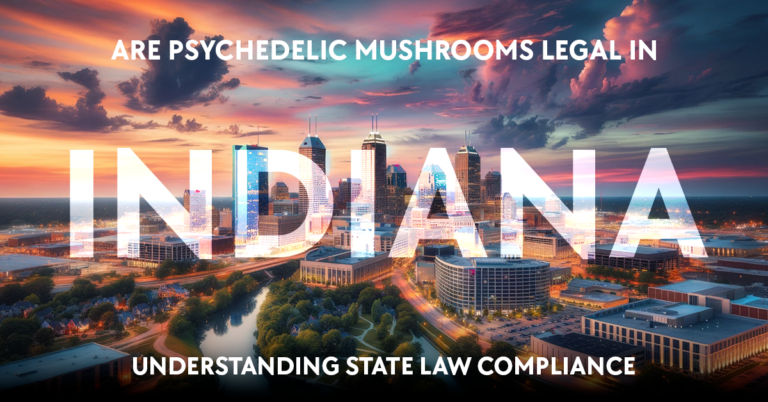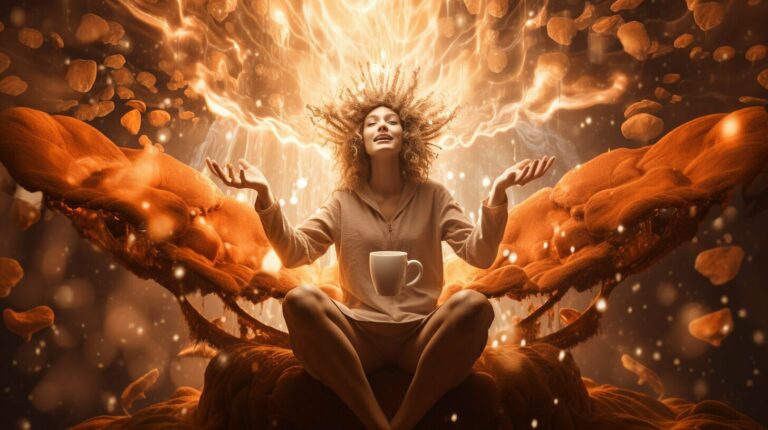Psychedelic mushrooms, also known as psilocybin mushrooms, are a topic of legal and medical interest across the United States. In Maryland, the current legal status of these substances is unambiguous – they are illegal. Psilocybin, the active hallucinogenic compound found in these mushrooms, is classified as a Schedule I controlled substance by the federal government, a classification that Maryland state law mirrors. This means that possession, sale, or cultivation of psychedelic mushrooms is subject to criminal penalties in Maryland.

Understanding the implications of this legal status is crucial for your awareness of state drug policy. It’s important to stay informed about ongoing legislative reform efforts and proposals. Despite a wave of interest in the potential therapeutic benefits of psychedelic substances, it is essential for you to recognize that the legal landscape for these substances, including psychedelic mushrooms, can vary significantly from one state to another.
Legality of Psychedelic Mushrooms in Maryland
Table of Contents
https://www.youtube.com/watch?v=z-aa-0zMdFs&embed=true
In Maryland, psychedelic mushrooms, also known as psilocybin mushrooms, are classified under Schedule I substances. This classification means that they are currently illegal to possess, sell, or distribute. Federal law also classifies psychedelic mushrooms as illegal, which supersedes state law. As a result, if you are found with these substances, you could face serious criminal charges, including fines or imprisonment.
The legal status of psychedelic mushrooms in Maryland has not followed some states’ recent moves to decriminalize or legalize these substances. As it stands, there are criminal penalties associated with psilocybin mushrooms, and no legislation has been passed in Maryland to change this status.
Decriminalization typically refers to the reduction or removal of criminal penalties for certain acts, but in Maryland, this has not been applied to psychedelic mushrooms. It’s important for you to understand that, as of now, any interaction with psychedelic mushrooms could result in criminal penalties.
Despite a growing interest in the potential therapeutic benefits of psychedelic mushrooms, Maryland has not yet altered its stance on the drug. While there is ongoing dialogue and research into the medical and societal impacts, without formal legalization or moves to decriminalize, possession and use remain illegal.
Here’s a brief overview for quick reference:
| Substance | Schedule | Legal Status | Potential Penalties |
|---|---|---|---|
| Psychedelic Mushrooms (Psilocybin) | I | Illegal (State and Federal) | Fines, Imprisonment, Criminal Charges |
Remember, laws can change, so it’s vital to stay updated on Maryland’s current regulations regarding psychedelic substances.
Historical Context of Psychedelic Legislation
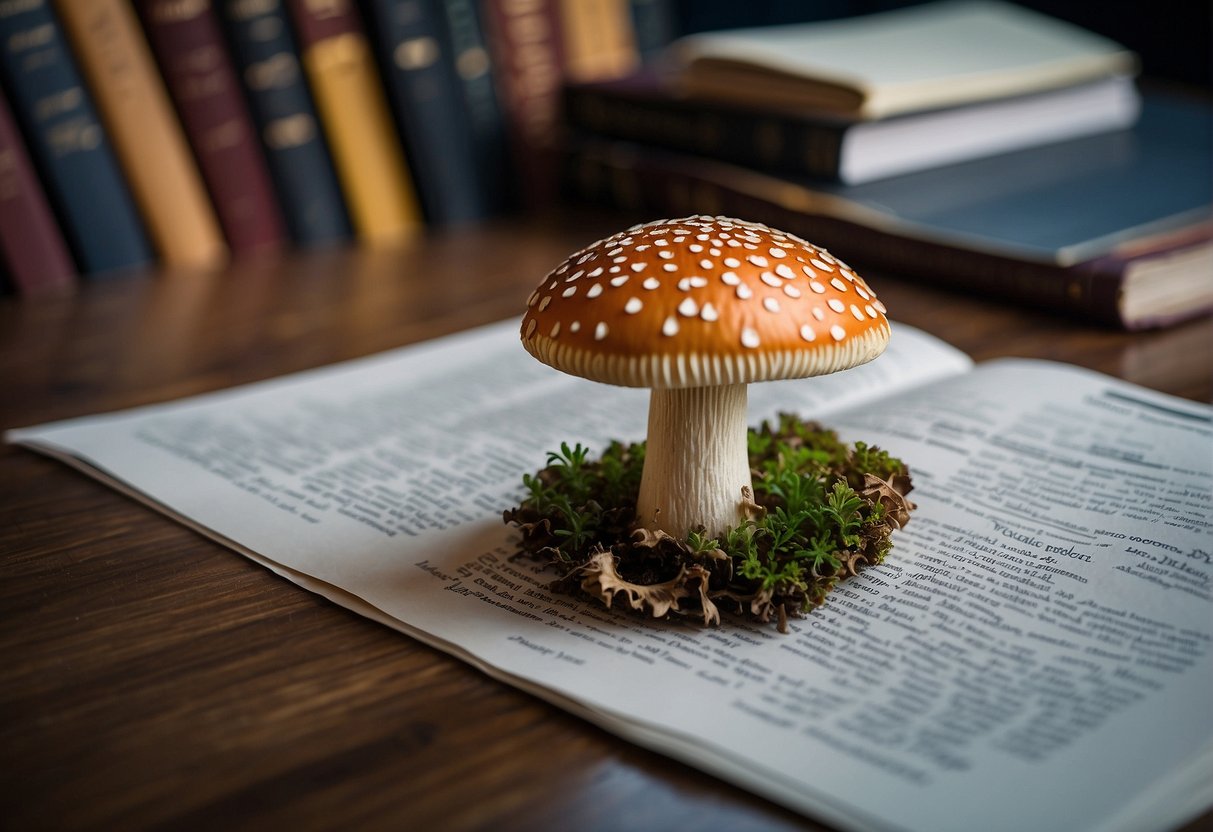
Exploring the dynamic landscape of psychedelic substance legislation, you will uncover the intricate tapestry of federal and state-level policies that have shaped the legal status of these substances in the United States.
Federal Stance on Psychedelic Substances
Under federal law, psychedelic substances like psilocybin and LSD are classified as Schedule I controlled substances. This DEA scheduling indicates they are considered to have “no current acceptable medical use and a high potential for abuse.”
State-Level Decriminalization Efforts
While the federal government maintains a strict stance, states like Oregon, California, and Colorado have initiated legislative efforts to decriminalize or legalize psychedelics. Cities such as Denver, Oakland, Santa Cruz, and Ann Arbor have passed resolutions to lower law enforcement priorities for certain psychedelic plants and fungi.
Maryland’s Position in the Movement
In Maryland, there have been moves to decriminalize psychedelics with the introduction of Senate Bill 709, aimed at decriminalizing substances like psilocybin mushrooms for personal use. Johns Hopkins University in Maryland has been at the forefront of psychedelic research, contributing to the conversation with evidence of potential therapeutic benefits.
Comparison with Cannabis Legalization
The push for psychedelic decriminalization mirrors the cannabis legalization movement, showing a shift from prohibition to regulation and a recognition of potential medical uses. Maryland, like several other states, has eased restrictions on cannabis, which may influence how it approaches psychedelics.
Emergence of Psychedelic Decriminalization
Decriminalization efforts have been gaining momentum as more jurisdictions reconsider the status of entheogens. Washington, D.C., and cities like Northampton and Somerville have moved toward decriminalizing the use and possession of plant and fungi-based psychedelics.
Psychedelic Research and Medical Controversy
Clinical trials are shedding light on the therapeutic use of psychedelics for treating conditions like depression, anxiety, and PTSD. However, it remains controversial due to the Schedule I status and concerns over misuse and safety.
Psychedelics in Therapy and Mental Health
Promising studies indicate that psychedelics could offer substantial therapeutic benefits. Leading institutions have piloted therapy protocols, exploring the benefits for mental health conditions such as PTSD, where traditional treatments have fallen short.
Considerations for Possession and Use
Laws and regulations around the possession and use of psychedelics are complex, with variability between federal classification and state-level initiatives. While some states consider decriminalization, the federal stance means that possession remains illegal under national law.
Impact on Society and Culture
The decriminalization movement represents a significant shift in cultural perception of psychedelics. As research challenges conservative views on the substances’ significance, public opinion is evolving, recognizing the potential for psychedelics to provide alternative treatments for various conditions.
Frequently Asked Questions
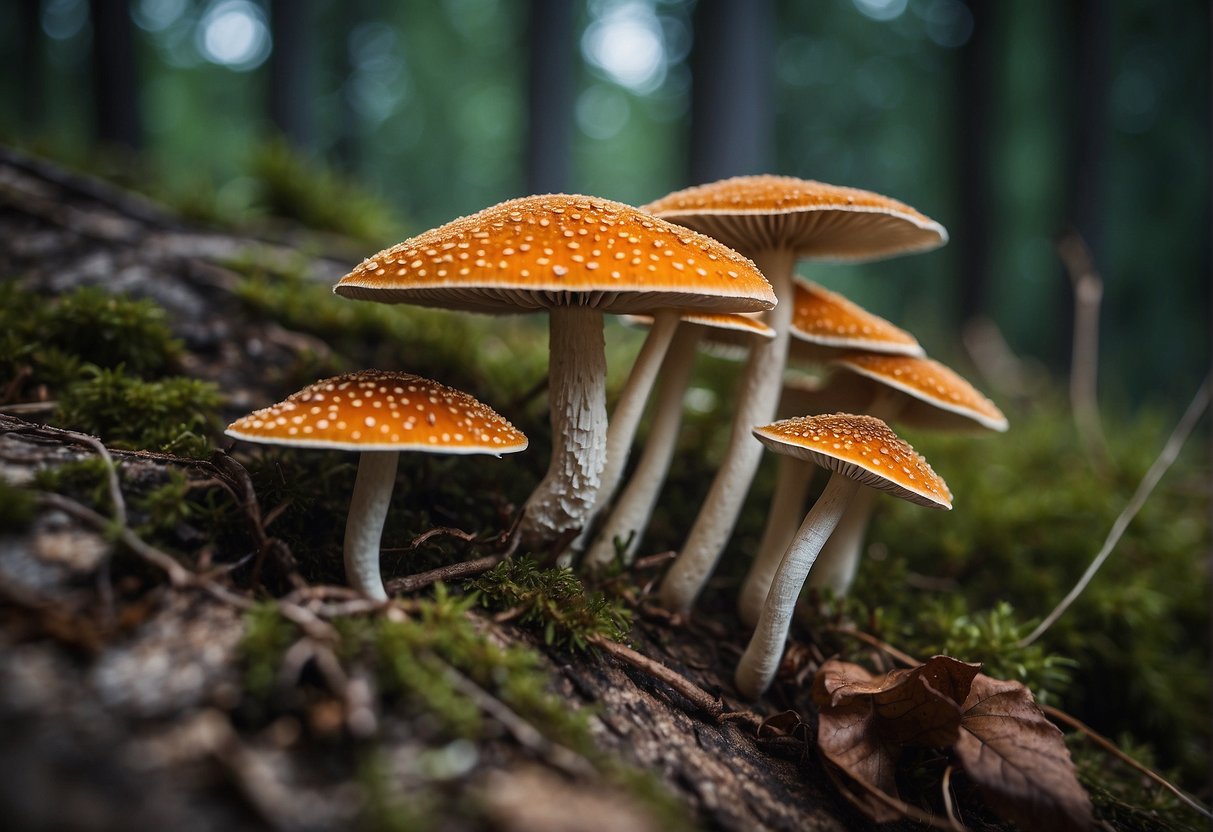
Explore these common questions for clarity on the legal status of psilocybin mushrooms in Maryland.
What is the current status of psilocybin mushroom legality in Maryland?
Psilocybin mushrooms remain classified as a Schedule I controlled substance in Maryland, which means their possession, use, and distribution are illegal under both state and federal law.
Can individuals possess or use psilocybin mushrooms for personal use in Maryland?
No, you cannot legally possess or use psilocybin mushrooms for personal use in Maryland. Doing so can lead to criminal charges due to their Schedule I classification.
Are there any pending legislative changes regarding psychedelic mushrooms in Maryland?
As of my knowledge cutoff date, there have been discussions and proposals, but no legislative changes have been officially passed regarding the decriminalization or legal status of psychedelic mushrooms in Maryland.
What are the potential penalties for possession or distribution of psilocybin in Maryland?
Penalties for possession or distribution of psilocybin can be severe, potentially including fines, imprisonment, or both, depending on the amount possessed and the intent (personal use vs. distribution).
Is there a distinction between the legality of possessing spores and fully grown psychedelic mushrooms in Maryland?
In Maryland, psilocybin-containing mushrooms at any stage of growth are illegal. However, the spores do not contain psilocybin and may not be explicitly regulated, but their cultivation into mushrooms is prohibited.
Has Maryland taken any steps towards the decriminalization or medical research of psychedelic mushrooms?
Maryland has yet to pass legislation specifically aimed at the decriminalization of psychedelic mushrooms. However, there is growing interest and discussions around potential medical research initiatives.

